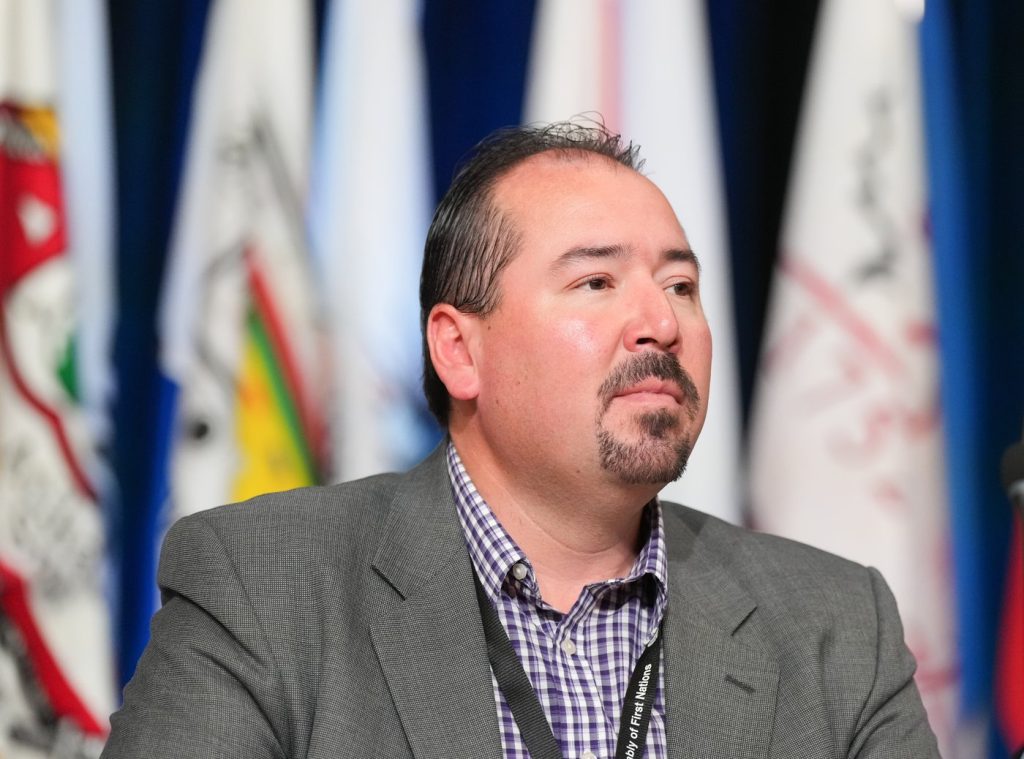The First Nations in Ontario are taking significant steps to reform the child welfare system in collaboration with the federal government. This move comes in the wake of substantial criticism regarding a previously reached agreement last July, which many deemed inadequate. Just a day prior, the federal government sent a confidential letter to the Assembly of First Nations, indicating their unwillingness to renegotiate reforms on a national level. This decision drew disappointment from various chiefs who advocated for a revised negotiation approach.
Cindy Woodhouse Nepinak, the National Chief of the Assembly of First Nations, voiced her concerns over the government's refusal to engage in broader negotiations, emphasizing the need for equitable support for First Nations children and families. She stated that the Assembly’s executive committee would explore further discussions to aid First Nations amidst this unfavorable development.
The origins of the dispute trace back to a $47.8 billion agreement established between Canada, the Chiefs of Ontario, Nishnawbe Aski Nation, and the Assembly of First Nations. This agreement was the culmination of a nearly two-decade legal battle concerning the federal government's underfunding of child welfare services on reserves. The Canadian Human Rights Tribunal recognized this as a discriminatory practice, as Indigenous children on reserves were receiving fewer services compared to those living off-reserve.
The agreement aimed to transition control of child welfare services back to First Nations over a ten-year period, funding for prevention initiatives, and the establishment of a new body to process complaints related to the child welfare system. However, this deal was met with discontent from many chiefs outside Ontario, leading to a vote against the proposal in October. They instead decided to reconfigure their legal and negotiation teams, calling for Canada to adopt a fresh negotiation mandate.
The push for an independent negotiation route was further emphasized at a December gathering, where chiefs outlined plans to involve the First Nations Child and Family Caring Society again, the organization behind the initial complaint lodged with the tribunal. Despite Indigenous Services Minister Patty Hajdu expressing disappointment about the rejection of the deal, no commitment for independent negotiations with Ontario had been made at that point.
Internal dynamics within the Assembly of First Nations surfaced as legal opinions suggested that that some resolutions utilized to reject the deal could be reconsidered, creating speculation about the assembly’s approach to the ongoing negotiations. Some First Nations leaders in Ontario, however, felt optimistic about the agreement's potential, noting that a significant majority of chiefs in their region had supported the deal, owing to its tailored components addressing regional challenges, such as additional support for rural First Nations.
Ontario Regional Chief Abram Benedict highlighted the positive aspects of the proposal meant for Ontario, reiterating that it was crafted to meet the unique needs of the region’s First Nations. Benedict emphasized the urgency of finalizing an agreement before any potential election, reassuring that reforms could be achieved with only cabinet approval instead of a comprehensive vote in Parliament.
In her statements, Hajdu reaffirmed that the impending negotiations with First Nations in Ontario aim to enhance the welfare of families, stressing that the holistic health of communities relies on strong familial structures. She expressed optimism about reaching a solution that fulfills the needs of all First Nations children and families, as the urgency for reforms became increasingly evident.
This ongoing discourse surrounding the reform of the child welfare system showcases the complex interplay between federal policies and Indigenous rights, with significant implications for First Nations communities across Ontario.










